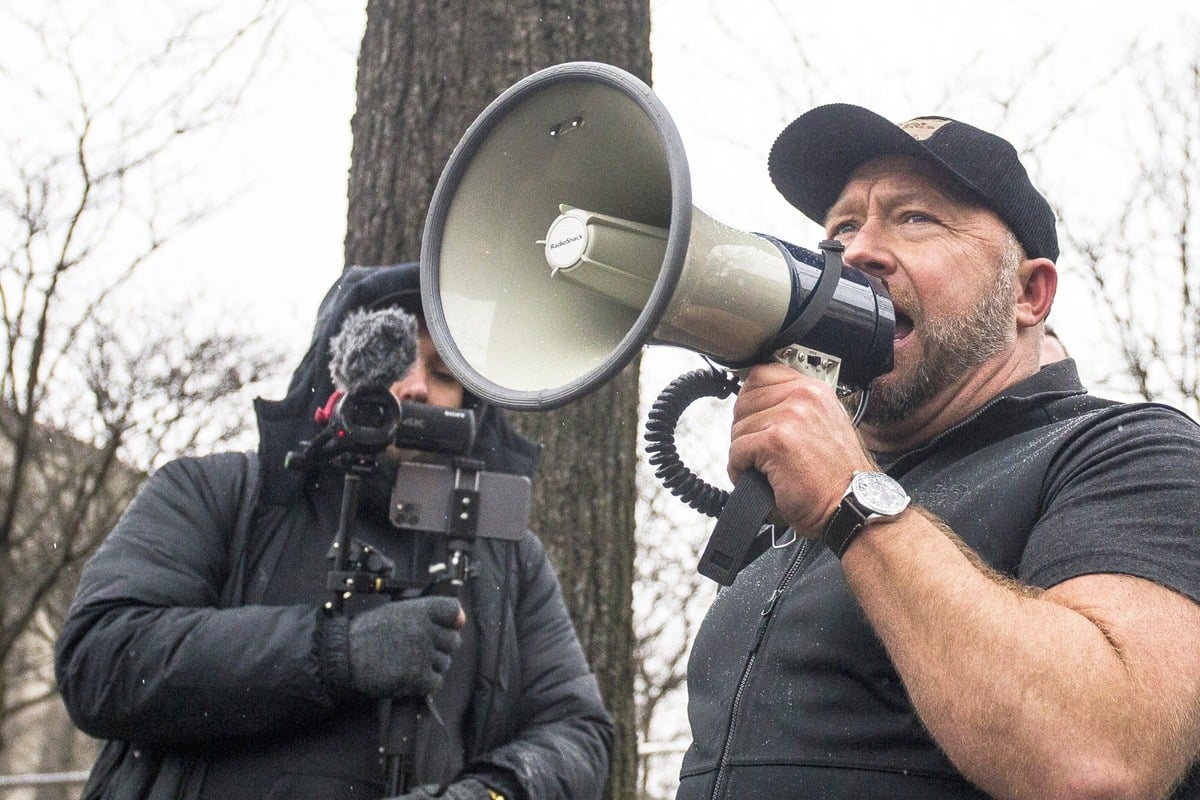
Alex Jones Sues to Retain Infowars, Exposing the Complexities of Censorship, Misinformation, and Free Speech
Alex Jones, the controversial far-right media personality, has filed a lawsuit against his internet domain registrar GoDaddy and web hosting company Epik, claiming that they improperly terminated his services due to his political views. This lawsuit has reignited a heated debate over the intricate balance between freedom of speech, the spread of misinformation, and the responsibility of digital platforms to regulate content.
Free Speech and the First Amendment
The core of Jones’s argument rests on the First Amendment of the United States Constitution, which guarantees the right to freedom of speech. Jones contends that the termination of his services constitutes censorship and violates his right to express his views, even if they are unpopular or controversial.
Supporters of Jones emphasize that free speech is essential for a healthy democracy. They argue that silencing dissenting voices, no matter how disagreeable, can stifle debate and impede the flow of information. Moreover, they point out that Jones’s statements, while often provocative, fall within the realm of protected speech under the First Amendment.
Misinformation and the Spread of Falsehoods
However, Jones’s critics argue that his platform has been used to spread harmful and inaccurate information. They point to his repeated claims about the Sandy Hook school shooting being a “hoax,” which led to harassment and threats against the victims’ families. Additionally, Jones has promoted conspiracy theories about COVID-19 vaccines and election fraud, contributing to public distrust and vaccine hesitancy.
They argue that digital platforms have a responsibility to combat the spread of misinformation, which can have real-world consequences. They cite research showing that exposure to false information can lead to distorted perceptions and harmful actions.
Platform Responsibility and Content Moderation
The lawsuit also raises questions about the role of digital platforms in content moderation. GoDaddy and Epik have argued that they have a right to moderate content on their platforms and that Jones’s repeated violations of their terms of service justified his termination.
Some experts argue that digital platforms have an obligation to take action against users who spread harmful or misleading information. They point to the growing problem of online extremism, hate speech, and disinformation. By moderating content, they argue, platforms can help protect users from these harmful effects.
However, others caution that content moderation can be a slippery slope. They argue that digital platforms can become overzealous in their efforts to remove offensive content and may end up censoring legitimate viewpoints. They also point out the potential for political bias in content moderation decisions.
Legal Precedents and Future Implications
The outcome of Jones’s lawsuit is uncertain. However, it has already had a significant impact on the debate over free speech and platform responsibility. The case has highlighted the complexities of regulating online content and the challenges of balancing the rights of individuals with the need to protect society from harmful information.
The lawsuit may also have implications for future legal challenges to platform moderation decisions. If Jones is successful, it could set a precedent for other users who claim they have been unfairly censored. Alternatively, a ruling in favor of GoDaddy and Epik could strengthen the ability of platforms to regulate content on their own terms.
Conclusion
The lawsuit filed by Alex Jones has brought to light the intricate relationship between free speech, misinformation, and platform responsibility in the digital age. It has sparked a necessary debate about the limits of free speech, the dangers of spreading false information, and the role of digital platforms in shaping our online environment.
While the outcome of the lawsuit remains uncertain, it has already served to highlight the pressing need for a nuanced and balanced approach to content moderation. We must find ways to protect freedom of speech while also safeguarding society from the harmful consequences of misinformation. This lawsuit is a reminder that the battle for truth in the digital age is far from over.
